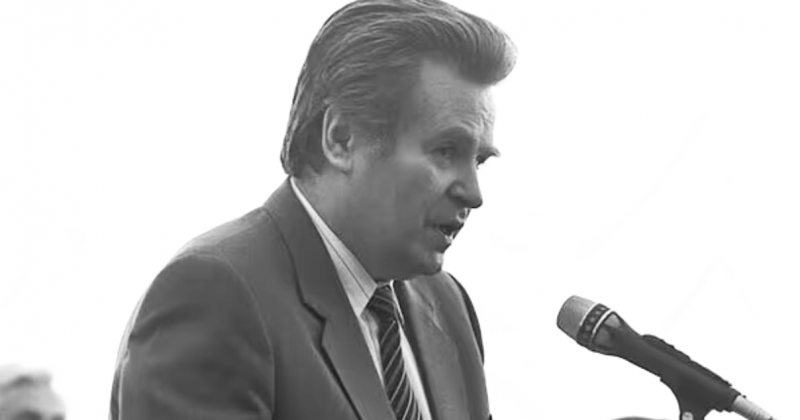Vyacheslav Leontyev, the former publisher of the Soviet-era newspaper Pravda, died Saturday evening after falling from his fifth-floor apartment window in Moscow. He was 87 years old.
Russian officials suggested that the fall may have been a suicide, citing a “nervous breakdown,” though they provided no additional details.
The Daily Mail reported that Leontyev was found dead near his residence on Molodogvardeyskaya Street, where he had lived for decades.
Authorities did not report any note or clear indication of intent.
Investigators have opened a case to examine the circumstances of the fall.
Leontyev had served as publisher of Pravda from 1984 until the dissolution of the Soviet Union in 1991, per reports.
The newspaper was the official organ of the Communist Party of the Soviet Union (CPSU), and during his tenure, it was considered a central tool of Soviet propaganda.
After the Soviet Union collapsed, Pravda was restructured, and Leontyev continued in a leadership capacity overseeing its operations.
Exiled Russian journalist Andrey Malgin commented on Leontyev’s death, stating, “The window falls continue.”
Malgin noted that Leontyev “knew a lot about the ‘Party’s money’ — the Pravda publishing house was the most profitable enterprise in the business empire of the CPSU Central Committee.”
These remarks highlight Leontyev’s long-standing involvement in the inner workings of the Soviet-era media and party finances.
Unconfirmed reports indicate that Leontyev had been experiencing health issues in the weeks preceding his death, the Daily Caller highlighted.
Sources suggest he had suffered from chronic medical problems, although no official medical record has been publicly released.
Authorities also reported that he had recently undergone stress due to personal and family health matters.
Leontyev’s death fits into a wider pattern of unexplained deaths among high-profile Russian figures, particularly those with ties to the state or those critical of the government.
Analysts and journalists have noted a series of fatalities involving prominent individuals in Moscow and other major cities in the years surrounding Russia’s invasion of Ukraine.
The Mirror reported that one such case involved Alexander Fedotov, the former St. Petersburg transport chief, who was found dead outside a luxury Moscow hotel in September.
Fedotov had been staying on a high floor during a business trip.
Russian police launched a criminal investigation but reported no suicide note.
The Daily Caller noted that another notable death was that of Transport Minister Roman Starovoit, who died in July under unclear circumstances shortly after being dismissed by Russian President Vladimir Putin.
The outlet further noted that Leontyev’s expertise in the operations and finances of Pravda made him a figure with considerable insider knowledge.
During the Soviet era, the newspaper was not only a propaganda tool but also a highly profitable enterprise, reportedly generating significant revenue for the CPSU Central Committee.
Investigators have noted that Leontyev was alone at the time of the fall.
There have been no reports of witnesses seeing the incident occur, per the Caller.
Vyacheslav Leontyev’s passing marks the end of a long career that spanned Soviet and post-Soviet media.
His work at Pravda placed him at the center of one of the USSR’s most important propaganda institutions, giving him insight into both political and financial matters of the era.

